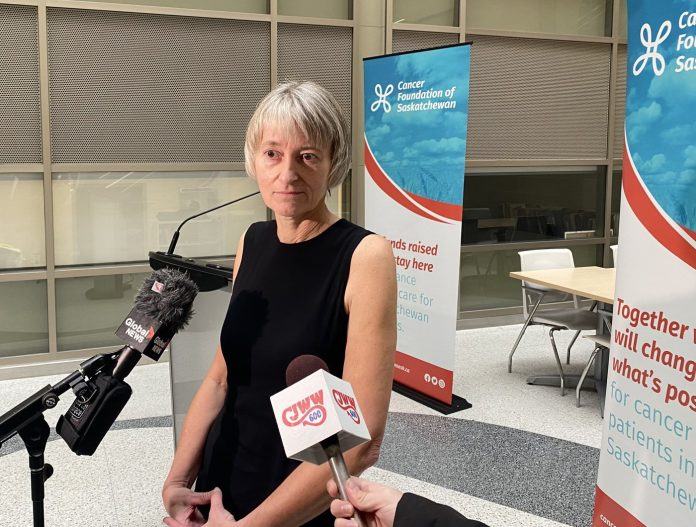
Kimiya Shokoohi, Local Journalism Initiative Reporter, The StarPhoenix
A new clinical trial in Saskatchewan gives ovarian cancer patients more information and greater agency in deciding how to treat their cancer.
Necessary equipment, funded through donation by the Donald E. Kramer family of Kramer Tractor, is set to improve the process for treatment and in turn improve the overall quality of life for ovarian cancer patients.
“This trial takes patients as they are and the results will be immediately transferable,” said Dr. Laura Hopkins, provincial lead for gynecologic oncology with the Saskatchewan Cancer Agency.
The clinical trial is the first of its kind in Canada, and arguably the world, for providing greater evidence-based decision-making in tumour testing.
According to the Canadian Cancer Society, it’s estimated that 3,100 Canadian women will be diagnosed with ovarian cancer this year. Of that number, 1,950 are expected to die from it. Cancer continues to be the leading cause of death in Canada.
The announcement was made under a spiral staircase lined with futuristic bright lights, with Indigenous art inscribed along the railing of one of the main atriums of the health sciences building at the University of Saskatchewan.
Previous treatment plans would make particular selections in patient testing based on research studies that had limited results from the onset about the patient.
“Why would you want to take toxic therapy unless you knew (it would work)?” Hopkins said, adding that the new approach is a “new standard of care that would improve chemo testing.”
A Next Generation Sequencer, on the market for approximately four years, is now in use in the laboratories of the U of S for direct patient care.
It improves genetic detection and provides detailed information for clinical decision-making in gynecologic cancers.
If the benefits of treatment are unclear after testing, then doctors can provide patients with greater options regarding the pros and cons of treatment plans.
“You can get a very detailed look into the genes,” said Dr. John DeCoteau, medical directer of the advanced diagnostic research laboratory reporting the tumour test results. “As a result ,we can determine whether the patient will respond well to the therapy.”
The sequencer costs up to half a million dollars, Dr. DeCoteau said. It takes two and a half to three days to process each person’s genes. The lab is working with 45 to 50 patients with ovarian cancer altogether.
The result from the new clinical trial is set to involve 100 patients and is intended to lead to better informed decisions and fewer related side effects for patients.
The undertaking has also meant a staff increase in the lab, which started with two people and now has 14.
While the clinical trial is specific to the province at the moment, Hopkins is working on expanding it across Canada while based in Saskatchewan.
“With tumour testing we can be specific about what the benefit is,” she said.
Kimiya Shokoohi is the Local Journalism Initiative reporter for the Saskatoon StarPhoenix. The LJI program is federally funded by the Government of Canada.

